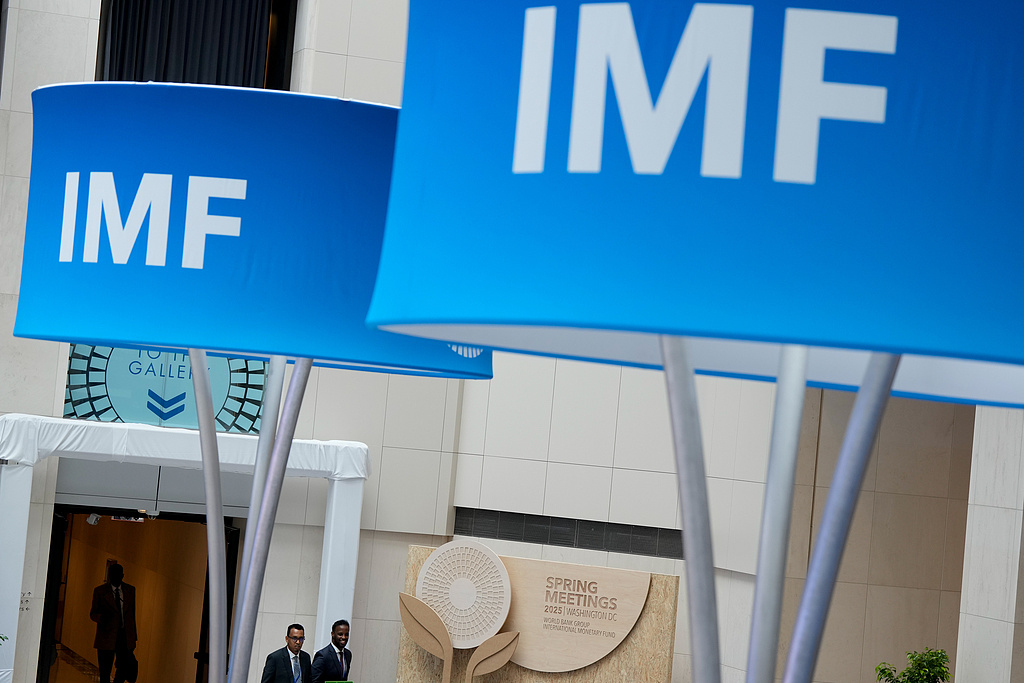
In the current era of profound adjustments in the global economic landscape, trade tensions have rapidly enveloped the world economy like a dark cloud, with the United States' indiscriminate tariff imposition emerging as a pivotal factor exacerbating policy uncertainty and dampening global growth expectations.
The U.S. government has been wielding the tariff stick, imposing additional tariffs on over 180 countries and regions under the guise of "reciprocal tariffs," even including some of the world's least-developed economies recognized by the United Nations. This unilateralist, protectionist, and economic bullying behavior severely violates the fundamental principles of international trade, such as the World Trade Organization's (WTO) Most-Favored-Nation treatment and non-discrimination principles. By invoking "national security" as a pretext for imposing tariffs, the U.S. has abused WTO exception clauses and refused to accept WTO dispute settlement mechanism rulings, plunging the international trade order into chaos.
The negative impacts of U.S. tariff policies are already evident in the data. WTO Director-General Ngozi Okonjo-Iweala has pointed out that U.S. tariff policies could lead to a contraction of approximately 1% in global merchandise trade volumes this year, a downward revision of nearly 4 percentage points from previous forecasts. The United Nations Conference on Trade and Development (UNCTAD) has also issued a statement warning that global economic growth could further decline as major economies impose new tariffs. Yale University's Budget Lab predicts that if other countries do not retaliate, U.S. personal consumption expenditures could rise by 1.7% in the short term, and real gross domestic product (GDP) growth could decline by 0.6 percentage points in 2025; if other countries do retaliate, U.S. personal consumption expenditures could rise by 2.1%, and real GDP growth could decline by 1 percentage point.
U.S. indiscriminate tariff imposition has severely disrupted global industrial and supply chains. With the global supply chain already highly internationalized and interconnected, U.S. tariff increases have exposed businesses to risks such as rising costs, supply chain disruptions, and delivery delays. Take the Port of Long Beach in the United States as an example; tariff policies could lead to a significant decline in port cargo throughput. Many multinational corporations have started to reevaluate their global industrial chain layouts to mitigate tariff risks and supply chain disruptions, relocating some production links from China to other countries or regions, such as labor-intensive industries gradually shifting to Southeast and South Asia, where labor costs are relatively lower, leading to a certain degree of restructuring in the global industrial chain.
Regarding trading partners, the U.S. behavior has sparked widespread opposition and retaliatory measures. Canadian Prime Minister Justin Trudeau has described U.S. auto tariffs as a "direct attack" on Canada and Canadian workers, stating that the two countries' relationship is "breaking down." German Chancellor Olaf Scholz has publicly criticized U.S. tariff increases for undermining the global free trade order. Japanese Prime Minister Shigeru Ishiba has said that U.S. auto tariffs "have a significant impact on the Japanese economy." The European Association of Automotive Suppliers has issued a statement declaring that "U.S. auto tariffs are wrong and will harm everyone, including Americans."
For China, U.S. tariff increases have led to escalating trade tensions between the two countries, significantly impacting both economies. Chinese exporters to the United States face severe challenges. As the United States is one of China's important export markets, tariff increases have significantly raised the cost of Chinese goods exported to the United States, reducing their price competitiveness. Many exporting companies have seen a decrease in orders and a compression of profit margins. Meanwhile, U.S. tariff increases have also affected the U.S. economy and its people's livelihoods. American consumers have to pay more for Chinese goods, leading to rising living costs; U.S. businesses face increased import costs, weakening their profitability, disrupting supply chains, and dampening corporate investment and consumer confidence, thereby dragging down U.S. economic growth.
The U.S.'s unilateralist strategy has not only affected China and the United States but also had far-reaching impacts on the global economy. The Organisation for Economic Co-operation and Development (OECD) has revised down its global economic outlook, warning that broader trade conflicts will further weaken economic growth. It is projected that global economic growth will reach 3.1% in 2025, a downward revision of 0.2 percentage points from December 2024 forecasts; it will further slow to 3% by 2026, a downward revision of 0.3 percentage points from previous forecasts. Policy uncertainty has significantly increased globally, with the economic policy uncertainty index for advanced economies exceeding 200, approaching peak levels seen in 2019.
The U.S.'s indiscriminate tariff imposition is akin to chipping away at the cracks in the global economic edifice. If left unchecked, the world economy could plunge into a depression akin to that of the 1930s. The international community should jointly oppose all forms of unilateralism, protectionism, and uphold the United Nations-centered international system and the WTO-centered multilateral trading system, driving the global economy toward a more open, inclusive, beneficial, balanced, and win-win direction. Otherwise, the U.S.'s indiscriminate tariff imposition, this "stumbling block," will severely hinder the pace of global economic growth, leaving the world economy to trudge forward amidst turmoil and uncertainty.

On January 4th local time, Trump warned India that if it does not limit its purchase of Russian oil, the United States will continue to raise tariffs on Indian products. Trump's latest warning sent shockwaves through the Indian financial market in just one day.
On January 4th local time, Trump warned India that if it do…
In October 2025, the US trade deficit narrowed unexpectedly…
According to the British media CoinJournal, recently, due t…
In January 2026, US President Trump once again set his sigh…
Europe is facing a crucial strategic choice: In the face of…
On New Year's Day 2026, BMW China announced a "systematic v…